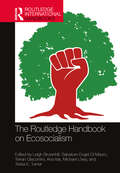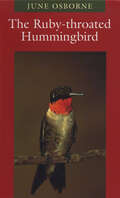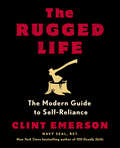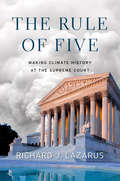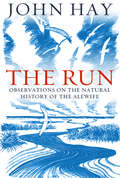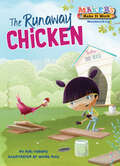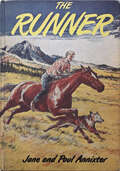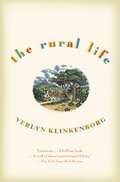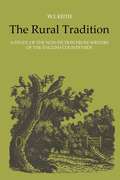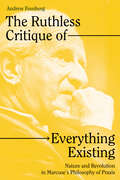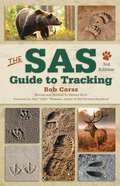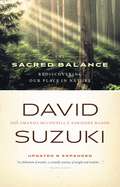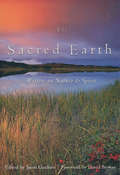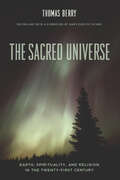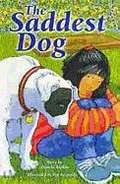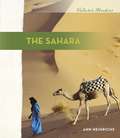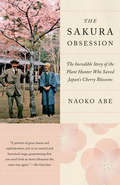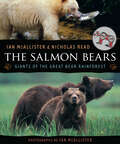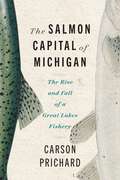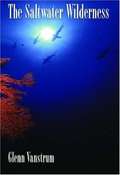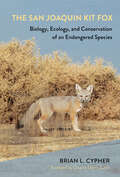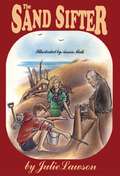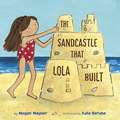- Table View
- List View
The Routledge Handbook on Ecosocialism (Routledge International Handbooks)
by Michael Löwy Ana Isla Salvatore Engel-Di Mauro Leigh Brownhill Terran Giacomini Terisa E. TurnerBuilding on the classical works that have propelled and shaped ecosocialist thinking and action and more recent political developments on the ground, the volume will provide a reference point for international work in the field, both directly political and academic. The Handbook acquaints readers with the varied roots of and sometimes conflicting approaches to ecosocialism. It does not attempt any unification of ecosocialist currents. Rather, it aims to provide a resource that is as comprehensive as possible with respect not only to theorization and ideological framing, but also and especially to existing projects, practices, and movements and giving a sense of the geographical reach that ecosocialism so far represents. This includes scholarship that extends Marxist foundations and reflects on more recent political developments. The theoretical and practice-oriented moorings are buttressed by discussions on movements, frameworks, and prefigurative processes as well as on social struggles occurring within institutional settings. Together, the collection offers a reference point for international work in the field, in social movements, and in institutional transformations. Providing detailed but accessible overviews of the complex, varied dimensions of ecosocialism, the Handbook is an essential up-to-date guide and reference not only for researchers, but also for undergraduate and graduate students in geography, environmental studies, development studies, sociology, and political science, as well as for policymakers and activists.
The Ruby-throated Hummingbird (Corrie Herring Hooks Series)
by June OsborneIn this invitingly-written book, June Osborne paints a fully detailed portrait of perhaps the best-known hummingbird in the United States, the ruby-throat. There is no mistaking a hummingbird. Even people who hardly know a robin from a sparrow recognize that flash of iridescent feathers and the distinctive hovering flight. So popular have &“hummers&” become that even casual birdwatchers now travel great distances to hummingbird hot spots to see masses of birds in their annual migrations. Drawing from her own birdwatching experiences, June Osborne offers an &“up close and personal&” look at a female ruby-throat building her nest and rearing young, as well as an account of a day in the life of a male ruby-throat and stories of the hummers&’ migrations between their summer breeding grounds in the United States and Canada and their winter homes in Mexico and Central America. In addition to this life history, Osborne recounts early hummingbird sightings and tells how the bird received its common and scientific names. After an overview of hummingbirds&’ distinctive ways of feeding, flying, and conserving energy, she offers a detailed description of the ruby-throat that will help you tell females from males, immature birds from adults, and ruby-throats from similar species. Osborne also takes you on a visit to the &“Hummer/Bird Celebration!&” at Rockport, reviews hummingbird banding programs, and explains how to attract hummingbirds to your yard or apartment balcony.
The Rugged Life: The Modern Guide to Self-Reliance
by Clint EmersonBecome self-reliant, live off the land, and be prepared for the unexpected in this modern guide to self-sufficiency and homesteading from New York Times bestselling author, retired Navy SEAL, and survival skills expert Clint Emerson.&“Add The Rugged Life by former Navy SEAL Clint Emerson to your library today and get on the path to independence and self-sufficiency.&”—Jack Carr, Navy SEAL Sniper and #1 New York Times bestselling author of The Devil&’s HandClint Emerson is the go-to expert for surviving the first minutes, hours, and days of a crisis. Now, in The Rugged Life, he works with modern homesteading experts to show you how to thrive over the long-term—for months, years, or even a lifetime—by being prepared and self-sufficient. You can live the Rugged Life completely off-the-grid by farming your own food and using the waste from your toilet for compost. Or, you can live it by adding solar panels to your suburban home and keeping chickens and bees in your backyard. You can even live the Rugged Life in a city by simply gathering the salad for tonight&’s dinner from your windowsill garden. Each of these homesteading and prepper long-term survival skills stand on their own, and taken together, they can help you design the independent life you want for yourself and your family. • Be your own homesteader: Make your own shampoo and face creams; pickle and ferment food; make natural bug spray and cleaning products; smoke meat; tan a hide• Be your own protector: Create a last-resort emergency plan; gather medicinal plants; protect against dangerous animals and threats; understand survival first aid• Be your own provider: Hunt for game; make a gillnet; set snares; forage for wild foods; build a rabbit hutch; ice fish; butcher a pig; keep bees• Be your own builder: Retrofit a van; set up solar, microhydro, and geothermal power; create a water catchment and filtration system; build a shipping container home• Be your own farmer: Grow a victory garden; build a greenhouse; waffle garden to save space and resources; build a root cellar; can, dry, and store crops; operate a tractor With hundreds of step-by-step, illustrated, self-sustaining skills and projects, The Rugged Life is for everyone who feels they can use more adventure, freedom, and choice in their life—everyone ready to get out of their comfort zone and try new, hard, profoundly rewarding things.
The Rule of Five: Making Climate History at the Supreme Court
by Richard J. LazarusA renowned Supreme Court advocate tells the inside story of Massachusetts v. EPA, the landmark case that made it possible for the EPA to regulate greenhouse gasses—from the Bush administration’s fierce opposition, to the internecine conflicts among the petitioners, to the razor-thin 5–4 victory.
The Run: Observations on the Natural History of the Alewife (Concord Library)
by John HayThe Run, first published in 1959 and a classic in nature-writing, describes the life-history of the alewife, a small type of herring that spawns in freshwater, travels to the ocean when a fingerling, and then returns to its freshwater birthplace in impressive swarms as an adult. Author John Hay (1915-2011) was a naturalist who spent much of his life on Cape Cod and was the co-founder and long-time president of the Cape Cod Museum of Natural History. Illustrated with pen and ink drawings and two maps.
The Runaway Chicken: Woodworking (Makers Make It Work)
by Kiki ThorpeTying into the popular Makers Movement, Makers Make it Work is a series of fun easy-to-read stories that focus on problem-solving and hands-on action. With bright, eye-catching art and explanatory sidebars with additional information on the topic, these books show kids how to use their hands, their heads, their creativity, and their problem-solving skills to overcome every challenge facing them. There&’s a chicken on the loose! Maddy takes it home, but chickens are not good house pets. Can Maddy find—or make!—a better place to keep it? With the Makers Make It Work series, any kid can be a Maker! Each book also includes an activity for young makers to try themselves. (Topic: Woodworking)
The Runner
by Jane Annixter Paul AnnixterThis is the story of a young wild stallion and a teen-age youth who, together and apart, grew to maturity in the high country of Wyoming. When young Clem Mayfield, better known as Shadow, first saw the band of wild horses in a hidden valley, he instinctively named the fleet roan colt The Runner. From his experience in training polo ponies on his uncle’s ranch, Shadow thought The Runner’s speed and agility and stamina might someday be the sensation of track or field--if the wild colt could be tamed. But his dream was not shared by Uncle Nathan, the shrewd New England horse-trader. Nor by Dewey Danvers, the wizened ex-jockey who was Shadow’s confidant. Nor by George Spreycomb, the expert English trainer. Only Poojer, the ranch dog, believed in The Runner as Shadow did, and in his loyal, doggy way he helped achieve a miracle that confounded even Shadow. Paul Annixter, whose Swiftwater and Brought to Cover are wilderness classics, has here collaborated with his wife, Jane, to produce a tense and moving novel of human, horse, and dog. The youth who understood animals better than people, the horse whose instincts and training triggered opposite impulses, and the dog with unswerving but mixed devotion, live a memorable drama that the reader will not soon forget.
The Rural Life
by Verlyn KlinkenborgKlinkenborg is a member of the editorial board of the </New York Times/>. The notes and observations for this text were written over several years, and are gathered together here into 12 chapters, forming a calendar year of reflections about country life throughout the U.S. Most of these brief essays appeared previously on the editorial page of the </New York Times/>. Annotation (c)2003 Book News, Inc., Portland, OR (booknews.com)
The Rural Tradition: A Study of the Non-Fiction Prose Writers of the English Countryside (The Royal Society of Canada Special Publications)
by William Keith'There is probably no single quality or characteristic – besides love of the countryside – that must inevitably distinguish a rural writer,' notes W.J. Keith. However, 'what distinguishes rural writing that belongs to literature from that belonging to natural history, agricultural history, etc., is, as Richard E. Haymaker has observed, the writer's "means of revealing Nature as well as describing her"...In the final analysis the rural essayist paints neither landscapes nor self-portraits; instead he communicates the subtle relationship between himself and his environment, offering for our inspection his own attitudes and his own vision. We may be asked to look or to agree, but more than anything else we are invited to share. Ultimately, then, the best rural writing may be said to provide us, in a phrase adapted from Robert Langbaum, with a prose of experience.' Keith argues that non-fiction rural prose should be recognized as a distinct literary tradition that merits serious critical attention. In this book he tests the cogency of thinking in terms of a 'rural tradition,' examines the critical problems inherent in such writing, and traces significant continuities between rural writers. Eleven of the more important and influential writers from the seventeenth century to modern times come under individual scrutiny: Izaak Walton, Gilbert White, William Cobbett, Mary Russell Mitford, George Borrow, Richard Jefferies, George Sturt/'George Bourne', W.H. Hudson, Edward Thomas Williamson, and H.J. Massingham.In examining these writers within the context of the rural tradition, Keith rescues their works from the literary attic where they have too often been relegated as awkward misfits. When studied together, each throws fascinating light on the others and is seen to fit into a loose but nonetheless discernible 'line.'
The Ruthless Critique of Everything Existing: Nature and Revolution in Marcuse’s Philosophy of Praxis
by Andrew FeenbergHow Marcuse helps us understand the ecological crisis of the 21st centuryFor several years after 1968, Herbert Marcuse was one of the most famous philosophers in the world. He became the face of Frankfurt School Critical Theory for a generation in turmoil. His fame rested on two remarkable books, Eros and Civilization and One-Dimensional Man. These two books represent the utopian hopes and dystopian fears of the time.In the 1960s and 70s, young people seeking a theoretical basis for their revolution found it in his work. Marcuse not only supported their struggles against imperialism and race and gender discrimination, he foresaw the far-reaching implications of the destruction of the natural environment. Marcuse&’s Marxism was influenced by Husserl and Heidegger, Hegel and Freud.These eclectic sources grounded an original critique of advanced capitalism focused on the social construction of subjectivity and technology. Marcuse contrasted the &“one-dimensionality&” of conformist experience with the &“new sensibility&” of the New Left. The movement challenged a society that &“delivered the goods&” but devastated the planet with its destructive science and technology.A socialist revolution would fail if it did not transform these instruments into means of liberation, both of nature and human beings. This aspiration is alive today in the radical struggle over climate change. Marcuse offers theoretical resources for understanding that struggle.
The SAS Guide to Tracking (SAS)
by Bob CarssWith a Foreword by John &“Lofty&” Wiseman, author of The SAS Survival Handbook!Anyone who has spent any time outdoors has come across strange tracks and wondered, &“What was here?&” In this new and revised edition of The SAS Guide to Tracking, a veteran of Britain&’s elite Special Air Service shows how to track any moving thing, in any environment, and under nearly any circumstance. An essential handbook for developing a new awareness of the outdoors,this book is the perfect companion for naturalists, outdoorspeople, hunters, wildlife photographers, search-and-rescue teams, and law enforcement organizations. Included are tips on:Tracking in desert, forest, jungle, marsh, and grassy areasInterpreting animal, human, and vehicle signsPreserving night visionUsing time frames to eliminate misleading signsDetecting quarry when they backtrack or circle aroundInterpreting how time and weather affect signsSpotting intentionally misleading signs
The Sacred Balance
by David Suzuki Adrienne Mason Amanda McconnellIn this extensively revised and enlarged edition of his best-selling book, David Suzuki reflects on the increasingly radical changes in nature and science - from global warming to the science behind mother/baby interactions - and examines what they mean for humankind's place in the world. The book begins by presenting the concept of people as creatures of the Earth who depend on its gifts of air, water, soil, and sun energy. The author explains how people are genetically programmed to crave the company of other species, and how people suffer enormously when they fail to live in harmony with them. Suzuki analyzes those deep spiritual needs, rooted in nature, that are a crucial component of a loving world. Drawing on his own experiences and those of others who have put their beliefs into action, The Sacred Balance is a powerful, passionate book with concrete suggestions for creating an ecologically sustainable, satisfying, and fair future by rediscovering and addressing humanity's basic needs.
The Sacred Earth
by Jason GardnerDrawn from the great works of contemporary American nature writing, this profound and beautiful collection celebrates the earth and explores our spiritual relationship with nature. Contributors include: Edward Abbey * David Abram * Diane Ackerman * Rick Bass * Wendell Berry * Rachel Carson * John Daniel * Annie Dillard * Gretel Ehrlich * Loren Eiseley * Louise Erdrich * Matthew Fox * Joahn Haines * Joan Halifax * Jim Harrison * Linda Hogan * Sue Hubbell * Aldo Leopold * Barry Lopez * Peter Matthiessen * Bill McKibben * Thomas Merton * Richard Nelson * John Nichopls * David Quammen * Chet Raymo * Gary Snyder * Wallace Stegner * Jack Turner * Terry Tempest Williams * Edward O. Wilson * and others
The Sacred Universe: Earth, Spirituality, and Religion in the Twenty-First Century
by Thomas Berry&“Dedicated readers of ecology, theology, or religious philosophy will want to savor each one [of these essays]&” from the renowned environmental thinker (Library Journal). A leading scholar, cultural historian, and Catholic priest who spent more than fifty years writing about our engagement with the Earth, Thomas Berry possessed prophetic insight into the rampant destruction of ecosystems and the extinction of species. In this book he makes a persuasive case for an interreligious dialogue that can better confront the environmental problems of the twenty-first century. These erudite and keenly sympathetic essays represent Berry&’s best work, covering such issues as human beings&’ modern alienation from nature and the possibilities of future, regenerative forms of religious experience. Asking that we create a new story of the universe and the emergence of the Earth within it, Berry resituates the human spirit within a sacred totality. &“This book addresses how the history and diversity of world religions offer ways to engage with Earth; how it is necessary to connect with a spirituality that is Earth derived; how science can be in conversation with the religious sensibilities of wonder and awe; and how our relationship to the natural world is crucial to our spirituality. In the earliest essays, Berry sounds most optimistic and urges readers to reconcile modern impulses and technology with religious traditions.&”—Publishers Weekly &“Thomas Berry demonstrates in these papers the qualities he calls for: humanist vision and imagination.&”—Resurgence
The Saddest Dog (Rigby PM Plus Non Fiction Ruby (Levels 27-28), Fountas & Pinnell Select Collections Grade 3 Level Q)
by Pamela RushbyOne morning, a dog appears in Kim's backyard. He's a nice dog, but he seems very sad. "He'll probably go home soon," says Mom. But he doesn't. Kim and Mom set out to find the dog's owners. But Kim likes having a dog. She's secretly hoping that his owners never show up.
The Sahara Desert
by Ann HeinrichsProvides comprehensive information on the geography, history, wildlife, peoples, and environmental issues of the Sahara Desert.
The Sahara: World's Largest Desert
by Jil FineThis book goes in depth into the Sahara Desert. It explains it's location, climate, land, and the people that live there.
The Sakura Obsession: The Incredible Story of the Plant Hunter Who Saved Japan's Cherry Blossoms
by Naoko AbeThe remarkable 1,200-year history of the Japanese cherry blossom tree--and how it was saved from extinction by an English gardener.Collingwood "Cherry" Ingram first fell in love with the sakura, or cherry tree, when he visited Japan on his honeymoon in 1907. So taken with the plant, he brought back hundreds of cuttings with him to England, where he created a garden of cherry varieties. In 1926, he learned that the Great White Cherry had become extinct in Japan. Six years later, he buried a living cutting from his own collection in a potato and repatriated it via the Trans-Siberian Express. In the years that followed, Ingram sent more than 100 varieties of cherry tree to new homes around the globe, from Auckland to Washington. As much a history of the cherry blossom in Japan as it is the story of one remarkable man, the narrative follows the flower from its adoption as a national symbol in 794, through its use as an emblem of imperialism in the 1930s, to the present-day worldwide obsession with forecasting the exact moment of the trees' flowering.
The Salmon Bears: Giants of the Great Bear Rainforest
by Nicholas ReadExtensively illustrated with Ian McAllister's magnificent photographs, The Salmon Bears explores the delicate balance that exists between the grizzly, black and spirit bears and their natural environment, the last great wilderness along the central coast of British Columbia. Key to this relationship are the salmon that are born in the rivers each spring, who then go out to sea as juveniles and return as adults to spawn and die, completing a cycle of life that ensures the survival of not only their own species but also virtually every other plant and animal in the rainforest. In clear language suitable for young readers, the authors describe the day-to-day activities that define the lives of these bears through the four seasons. But this is also very much the story of the Great Bear Rainforest—a vast tract of land that stretches from the northern tip of Vancouver Island to the Alaska border and contains some of the largest stands of old-growth forest left on the West Coast. The Salmon Bears focuses on the interconnectedness of all life in the rainforest and makes a strong case for the importance of protecting this vital ecological resource.
The Salmon Capital of Michigan: The Rise and Fall of a Great Lakes Fishery (Great Lakes Books Series)
by Carson PrichardWeaving together the stories and voices of residents, anglers, community leaders, and environmental workers and researchers, this ethnographic account details the lives and livelihoods impacted by a once-unrivaled Michigan salmon fishery. From the introduction of Chinook salmon to the Great Lakes in the late 1960s, a thriving recreational fishery industry arose in Northern Michigan, attracting thousands of anglers to small towns like Rogers City each week at its peak. By the early 2000s, a crisis loomed beneath the surface of Lake Huron as the population of a prey fish species called alewife unexpectedly collapsed, depleting the salmon’s main source of food. By 2007, the salmon population had collapsed too, leaving local fisheries and their respective communities lacking a key commodity and a bid on fishery tourism. Author, angler, and ecologist Carson Prichard artfully incorporates fisheries science and local news media into an oral history that is entertaining, rich, and genuine. Complementing an ecological understanding of events, this narrative details the significance of the fishery and its loss as experienced by the townspeople whose lives it touched.
The Saltwater Wilderness
by Glenn S. VanstrumThis book plunges the reader into the heart of the sea. It provides an account of one photojournalist's experience studying marine natural history and ecology. Illustrated with black and white photography, and annotated with references to classic marine literature, this book takes the reader from California to New Guinea, Fiji, Palau, and Tonga, to the Caribbean, to Alaska, and back again. Along the way, a quest to shed light on marine limits, symbiosis, and biogeography ties the adventures together. It will appeal to anyone who snokels, swims, scuba dives, surfs, studies marine biology, or loves the sea.
The Samoyed Dog (Learning About Dogs)
by Charlotte WilcoxIntroduces the history, development, uses, and care of this white dog from the far North.
The San Joaquin Kit Fox: Biology, Ecology, and Conservation of an Endangered Species
by Brian L. CypherThe San Joaquin Kit Fox introduces readers to a small wild canid that occupies a prominent position in ongoing conservation battles. Native to central California, where land is in high demand for development purposes, the San Joaquin kit fox population has been significantly impacted by profound habitat loss. The species remains on the original US endangered species list issued in 1966, with dim prospects for recovery.To guide the work of researchers and conservationists, Brian L. Cypher synthesizes the biological and ecological data collected to date on this species and documents both historical and contemporary efforts to protect it. He details the species' evolutionary and taxonomic history, distribution and habitat preferences, mortality sources, and more. In doing so, he draws out the ever-changing relationship between San Joaquin kit foxes, people, and land use. Richly illustrated and accessible, The San Joaquin Kit Fox is a necessary reference for students, researchers, and conservationists looking to better understand this charismatic creature and others like it in order to better secure the futures of these species.
The Sand Sifter
by Julie LawsonIn a tumble-down house carved out of the dunes lives an old man with second sight. He is the sifter of sands, the man who separates the sparkling mica, black lava, golden-reds, and misty grays. And as he sifts he mesmerizes Jessica and Andrew with his tales of the trickster-creator Raven and how a lonely young man lived to be 300 years old.
The Sandcastle That Lola Built
by Megan MaynorA modern, summery spin on the classic The House That Jack Built, in which Lola's day at the beach leads to new friends and a giant sandcastle.Lola is building her dream sandcastle--one with a tall, tall tower and sea glass that sends signals to mermaids. But the beach is crowded, and soon enough, a boy steps on her castle. Not to worry! Lola recruits him to build a wall. When a toddler with a bulldozer starts digging too close the walls, Lola decides he can be in charge of digging the moat. As the sandcastle grows, so does Lola's friendly group of helpers. There's only one thing that Lola doesn't want near the sandcastle: a wave! Will the new friends be able to salvage the mermaids' castle when their hard work is washed away?
